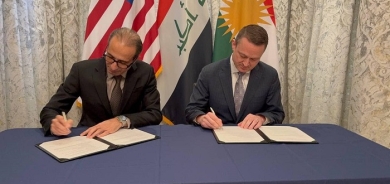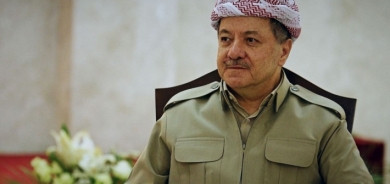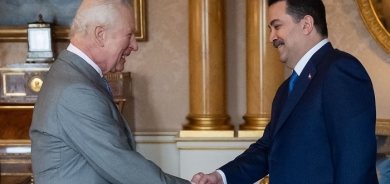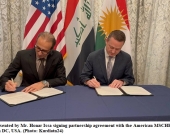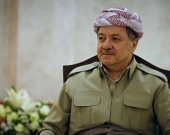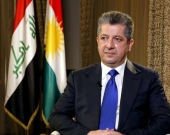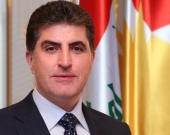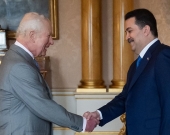Egypt's army raises pressure on Islamists with call for rallies

Egypt's military chief called for mass rallies on Friday to give him a mandate to tackle violence that has surged following his overthrow of Islamist President Mohamed Mursi, ramping up pressure on the ousted leader's Islamist supporters.
General Abdel Fattah al-Sisi, who deposed Mursi on July 3 and installed an interim administration in the wake of huge street protests, said on Wednesday he did not want more bloodshed and urged national reconciliation.
Mursi's Muslim Brotherhood, which accuses Sisi of leading a coup, said the call for nationwide demonstrations raised the specter of a military crackdown, and warned of possible civil war.
Underscoring the potential for trouble, Mursi's backers announced plans for 34 marches in and around Cairo on Friday. Egypt's public prosecutor later ordered the arrest of Brotherhood leader Mohamed Badie and eight other senior members of the movement in a probe over accusations of inciting violence.
Badie and other Brotherhood figures have been detained before and subsequently released since July 3. The Brotherhood, which for decades existed largely underground before the fall of strongman Hosni Mubarak in 2011, fears a broad crackdown.
Egypt's first freely elected president, Mursi has been held at an undisclosed military facility since he was shunted from power.
Speaking after days of sporadic street clashes that have left more than 100 dead, Sisi said ordinary Egyptians should rally to strengthen the hand of the army and police.
"I request that all Egyptians next Friday ... go down (into the street) to give me a mandate and an order to confront possible violence and terrorism," he told a military graduation ceremony in remarks broadcast live by state media.
Citing the "current situation", the United States said President Barack Obama had decided to delay delivery of four F-16 fighter jets to the Egyptian army, signaling deepening concern in the West over the course taken by the Arab world's most populous country.
WIDESPREAD VIOLENCE
Crowds on the streets have played a crucial role in Egypt's faltering transition to democracy, triggering the downfall of U.S.-backed Mubarak in 2011, forcing concessions from the generals who took power from him, and then rallying on June 30 to denounce Mursi's troubled first year in office.
Since the fall of Mubarak as the Arab Spring revolutions took hold more than two years ago, Egypt has been in turmoil, raising concern among allies in the West and in neighboring Israel, with which Egypt has had a peace treaty since 1979.
Brotherhood supporters have also taken their woes onto Egypt's sun-baked streets, setting up a round-the-clock vigil in northeast Cairo, close to key military installations.
"This is an invitation to civil war and the spilling of the people's blood in the streets," the Brotherhood said in a statement published on Facebook, denouncing Sisi as head of a "military dictatorship".
Sisi's speech followed an overnight bomb attack on a police station in Mansoura, 110 km (68 miles) north of Cairo, that killed one person and wounded two dozen others. A government spokesman condemned it as a terrorist attack.
Two soldiers were also killed in attacks by militants in the lawless North Sinai region shortly after Sisi spoke and four militants died in a car bomb near a police training center in the area, security sources said. Twenty-four people were reported hurt in clashes in the Nile delta cities of Damietta and Menoufiya.
In overnight bloodshed in Cairo, two people were killed and 23 wounded when a march of Mursi supporters came under fire, security sources said. It was the latest in a line of assaults targeting Islamists.
"We think that after what Sisi has said, there will be violence on Friday. He is encouraging thugs to come and attack our peaceful protest," said Mohammed Hamdi, 24, an engineering student attending the Brotherhood's Cairo vigil.
"We have no guns and don't want violence. We will keep protesting the bloody military coup," he said.
"WAR ON TERRORISM"
The authorities have accused the Brotherhood of inciting trouble and Mursi supporters of using weapons.
"Egypt has started a war on terrorism," said Ahmad El Moslimany, a spokesman for Egypt's army-backed interim presidency. "The call by General al-Sisi is for the protection of the revolution and the state," he said in comments carried by the state news agency al-Ahram.
Wearing dark glasses and brimming with confidence, Sisi said he would stick to a political roadmap drawn up by the military that envisions fresh parliamentary elections within about six months. The Brotherhood has said there can be no political reconciliation until Mursi is restored to power.
"The coming elections will be decisive. If you have real weight and public opinion supports your movement, then that will be reflected in the coming vote," he said, wearing full military uniform.
Many ordinary Egyptians say they are tired of the constant tensions, which have kept tourists away, and some people openly welcomed Sisi's announcement on Wednesday.
"Thank God! We were wondering when the army would make its move and release us from this chaos and horror the Brotherhood is causing," said Ahmed Mohamed, a 76-year-old pensioner, in central Cairo.
State news agency Mena said the interior ministry planned "unprecedented security" to protect the Friday rallies.
The Tamarud (Rebel) youth group, which earlier this year launched the campaign to unseat Mursi, accusing him of partisanship and mismanagement, said on Facebook that it was throwing its weight behind a fresh round of demonstrations.
Yasser El-Shimy, an Egypt expert at the International Crisis Group, said escalating tensions jeopardized the prospects for establishing political stability.
"Both the authorities and the Muslim Brotherhood should recognize the urgency of negotiating a compromise out of this ever-escalating impasse," he said.
(Additional reporting by Shadia Nasralla, Yasmine Saleh and Noah Browning; Writing by Crispian Balmer and Matt Robinson; Editing by Peter Graff)
By Asma Alsharif and Tom Perry


